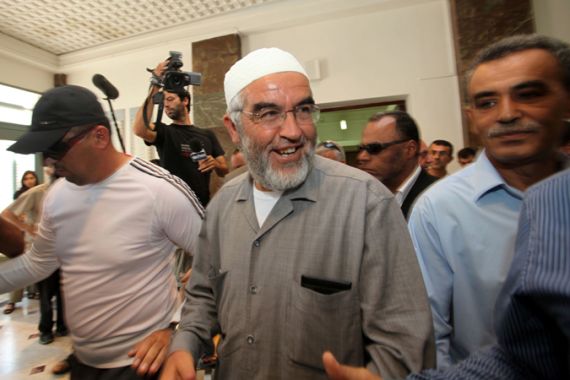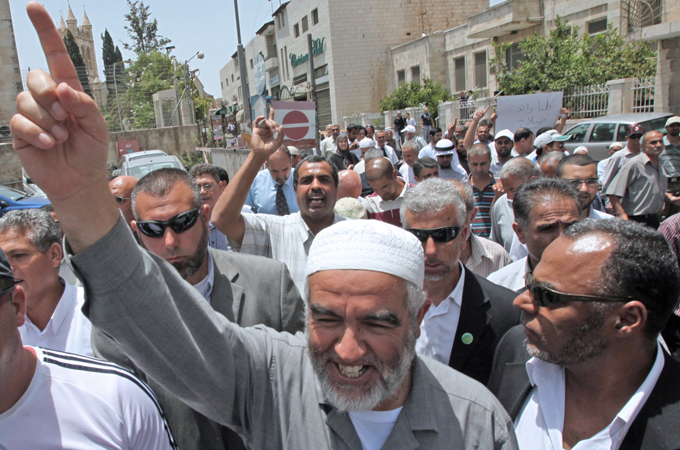Barred Palestinian leader wins compensation
Britain’s high court rules Sheikh Raed Salah was unlawfully held after entering UK despite ban, and orders compensation.

 |
| Britain pointed to a ban order when accusing Salah of illegal entry, but has not confirmed the reasons for the ban [EPA] |
Sheikh Raed Salah, the leader of the Islamic Movement in Israel, has been granted compensation by Britain’s high court for “wrongful detention”.
Justice Andrew Nicol, the presiding judge, ruled on Friday that the Palestinian activist is “entitled to damages for wrongful detention” on June 28, when he was arrested outside his hotel in London. The amount has yet to be assessed.
Theresa May, the interior minister, had ordered the arrest under the charge that Salah had illegally entered the country.
UK’s interior ministry saidthat there was a ban order on Salah, who entered Britain as part of a speaking tour.
Nicol also granted Salah the permission to appeal, endorsing the view that Salah was right to demand a judicial review into the legality of his detention, but refused the judicial review on grounds of policy and legal purpose.
Salah’s lawyer, Tayab Ali, welcomed the ruling, but expressed disappointment at the judge’s refusal of judicial review.
“This is a worrying first step towards a policy of preventative detention for acts that have not even been contemplated yet,” Ali said.
Immigration tribunal
Salah, who remains on bail, must still go to an immigration tribunal to lodge an appeal against his deportation.
The Islamist leader was arrested in London on a ten-day trip to Britain, during which he intended to speak at several events, including a meeting at the House of Commons, the lower house of the parliament of the UK.
He was finally granted bail on July 18 under strict conditions, including that he wear an electronic tag, observe a night-time curfew, report daily to immigration officials and refrain from any public speaking.
The Islamic Movement is tolerated in Israel but is under constant surveillance and harassment.
Salah has been detained by Israel on multiple occasions, including most recently at the border with Jordan after allegedly fighting with a soldier during an interrogation. Civilians are often interrogated by Israeli border soldiers.
In 2010, he spent five months behind bars for allegedly spitting at an Israeli policeman, and he has been detained on a number of other occasions for alleged crimes.
The father-of-eight was also held after taking part in the Gaza-bound aid flotilla that Israeli naval commandos stormed on May 31, 2010, killing nine activists in a deadly assault.
Arrest condemned
The arrest of Salah drew condemnation from Palestinian leaders across the political spectrum.
The case raised questions about UK’s security policy, and the decision-making process that determines which foreigners will and will not be prevented from visiting.
Arab Israelis and Palestinians accused the British government of collaborating with Israel in detaining Salah.
Ibrahim Sarsur, a United Arab List member of the Knesset, the Israeli parliament, described the arrest as “strange”.
“Sheikh Salah is one of the leading figures in the Arab Israeli community. He travelled to the UK legitimately, and he had no knowledge of any ban on his entering the UK, so we are surprised and disappointed by this illegitimate procedure,” he told the Guardian newspaper.
“We know that Israel is not happy with anyone that opposes its policies, but we see Britain as the most democratic place in the world and the birthplace of democracy. Britain should deal with delicate matters of the Middle East with delicacy and not act as a collaborator with the Israeli government.”
The Arab League condemned the British government for the arrest in a statement, calling for his immediate and unconditional release, stating that it had received the news of the arrest “with considerable shock and surprise”.